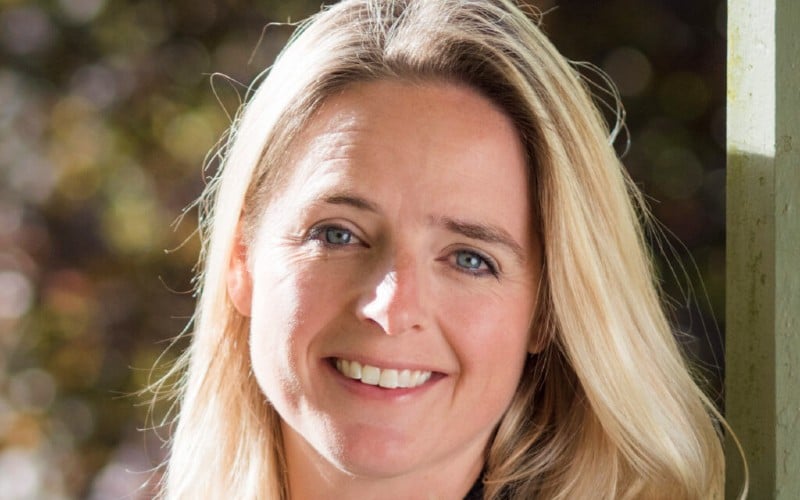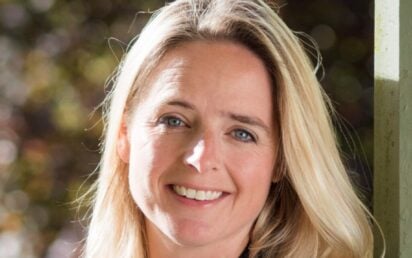TikTok has taken the world by storm. But how many among you have ever heard of Tick?
Jessica Butcher MBE started the business, also focused on short-form video content, back in 2018 with people she was originally mentoring.
“We had a really exciting time brainstorming. That’s always the fun part of a startup: you think you’ve got a great idea, and you just want to run full pelt at it. Then s*** gets real quickly,” she tells the Secret Leaders podcast.
“Fundraising is exciting because you get other people excited by your vision. And then you got to deliver. As good as our concept and idea was, we had a number of things working against us.
“We were launching a vertical mobile-first step-by-step story-style video platform… and we called it Tick. ‘Tick. Done’ was the slogan. Two months after we launched it, TikTok took off… a lot of my friends thought I was one of the founders of TikTok!
“They were like, ‘wow, you’re doing amazing, I hear about you everywhere!’ And I was like, ‘ah, not me…’”
The serial entrepreneur also co-founded augmented reality platform Blippar – which has itself been through a high-profile restructure – and is now acting CMO at cryptocurrency Sweatcoin.
“I could arguably say that most of my CV is full of failed startups and scaleups!” she says.
Tick’s vision was to share ‘how to’ educational knowledge. “The most commonly asked questions on Google are ‘how do I…’ We recognised that social media platforms have become very narcissistic, and there was a real dearth of educational content within those platforms,” she explains.
“We wanted to make that our niche. We also recognised that the world had become mobile-first, and YouTube videos simply weren’t cutting it any more when it came to very quick assimilation of information.
Lack of expertise
“With hindsight, our lack of expertise in knowing how to build user-generated content [was terminal]… you can have great ideas, but ultimately, it all rests on the execution, and crucially finding a problem that you’re really solving and making so much better than any other solution in the market. We really struggled to find product-market fit.
“We should have prioritised a few of those niches with the right creators… instead, we tried to do too many different verticals at once to snowball. I really didn’t understand that kind of social media consumer-first type of marketing, as my background has primarily been B2B… I started to feel ignorant within that very, very quickly.”
No dopamine hit
Butcher says the team wasn’t seeking to build a “validation, dopamine-driven, ‘like’ culture”.
“Our point of difference was that our content would live on the open web – it wouldn’t just live within our closed app,” she says. “We saw our route to market as more SEO than app acquisition – but we didn’t build a compelling-enough creative tool to create the sort of volumes of content that could have driven that SEO.
“Ultimately, we ran out of runway and steam with the problems that we were looking to solve.”
The business was closed down two months before COVID-19 lockdown, which meant Butcher could take stock while homeschooling three children under the age of eight.
“I really started to question my identity: am I an entrepreneur through-and-through, or am I just entrepreneurial? Do I need to have that sense of ownership of the vision and the product?” she reveals. “I wrestled with that for about two years. I flirted with a number of different portfolio ideas and I struggled to commit to anything for a long time.
“It taught me that I create and think best in collaboration with other people, which is why I’ve always found myself in co-founding teams, and why I need to be inspired by the people around me to create and deliver well.”
Experiments, not failures
She adds: “I don’t deem experiments as failures – I deem them as experiments. You do feel regret and disappointment when you’ve invested heart and soul into something in particular, where other people’s money is concerned, and other people’s careers… that is very, very traumatic for you as a manager.
“When the whole dream just dissipates, that is heartbreaking – and so yeah, I guess there’s a definition of failure there. But on a personal level, a lot of the projects that I’ve worked on haven’t gone on to succeed. But from each have come learnings and a network of incredible, inspiring, talented people. Different pathways open as a result of both of those things.
“But when you go out all guns blazing and it sort of fizzles away… I’ve seen other entrepreneurs be a lot braver and do a sort of post-mortem on the journey they’ve been on, but my preference was to sit on it and let it percolate in my back brain. I spent two years in that cycle.”
Secret Leaders is available on Apple, Spotify and all major podcast platforms.

